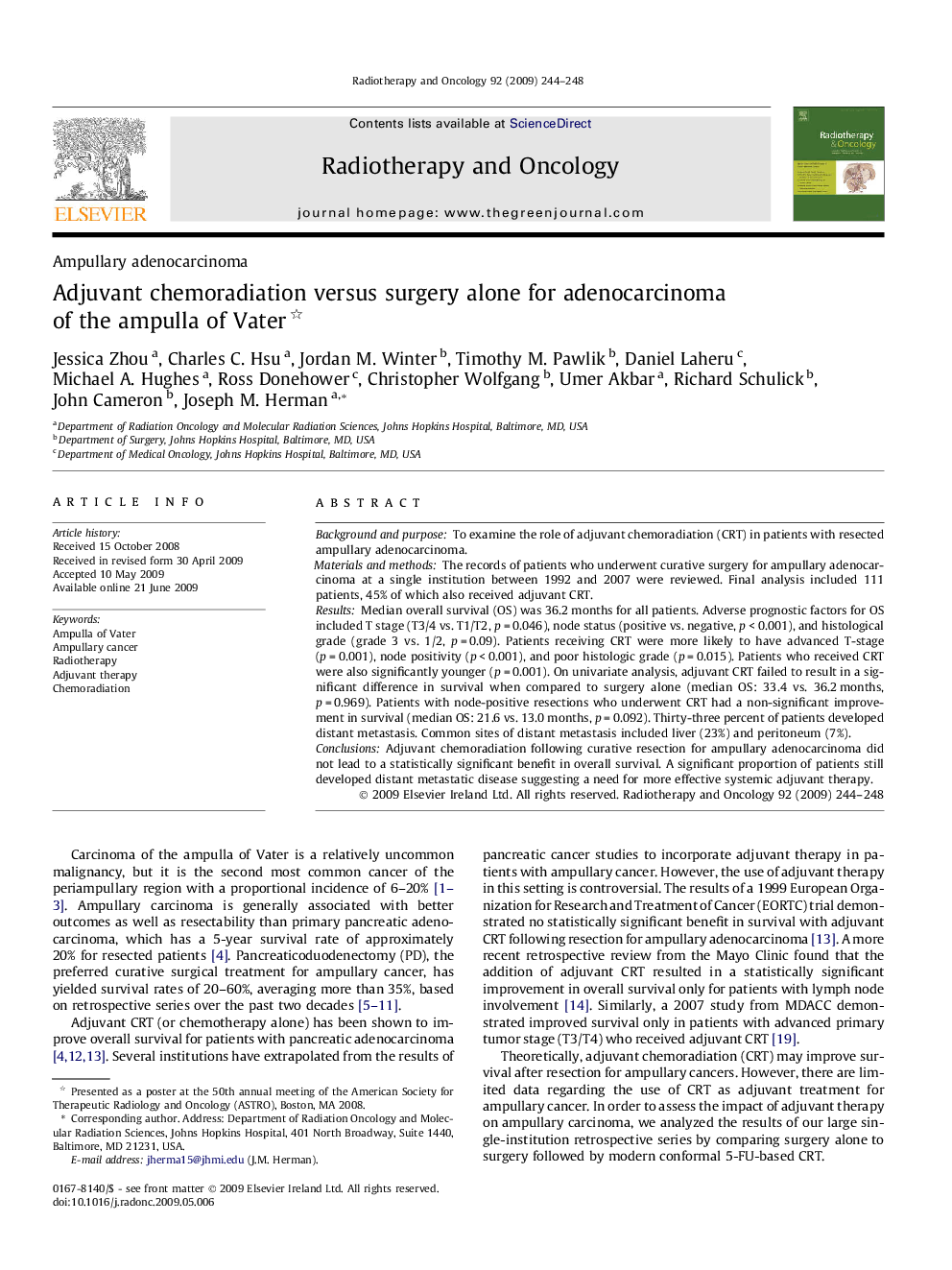| Article ID | Journal | Published Year | Pages | File Type |
|---|---|---|---|---|
| 2159863 | Radiotherapy and Oncology | 2009 | 5 Pages |
Background and purposeTo examine the role of adjuvant chemoradiation (CRT) in patients with resected ampullary adenocarcinoma.Materials and methodsThe records of patients who underwent curative surgery for ampullary adenocarcinoma at a single institution between 1992 and 2007 were reviewed. Final analysis included 111 patients, 45% of which also received adjuvant CRT.ResultsMedian overall survival (OS) was 36.2 months for all patients. Adverse prognostic factors for OS included T stage (T3/4 vs. T1/T2, p = 0.046), node status (positive vs. negative, p < 0.001), and histological grade (grade 3 vs. 1/2, p = 0.09). Patients receiving CRT were more likely to have advanced T-stage (p = 0.001), node positivity (p < 0.001), and poor histologic grade (p = 0.015). Patients who received CRT were also significantly younger (p = 0.001). On univariate analysis, adjuvant CRT failed to result in a significant difference in survival when compared to surgery alone (median OS: 33.4 vs. 36.2 months, p = 0.969). Patients with node-positive resections who underwent CRT had a non-significant improvement in survival (median OS: 21.6 vs. 13.0 months, p = 0.092). Thirty-three percent of patients developed distant metastasis. Common sites of distant metastasis included liver (23%) and peritoneum (7%).ConclusionsAdjuvant chemoradiation following curative resection for ampullary adenocarcinoma did not lead to a statistically significant benefit in overall survival. A significant proportion of patients still developed distant metastatic disease suggesting a need for more effective systemic adjuvant therapy.
